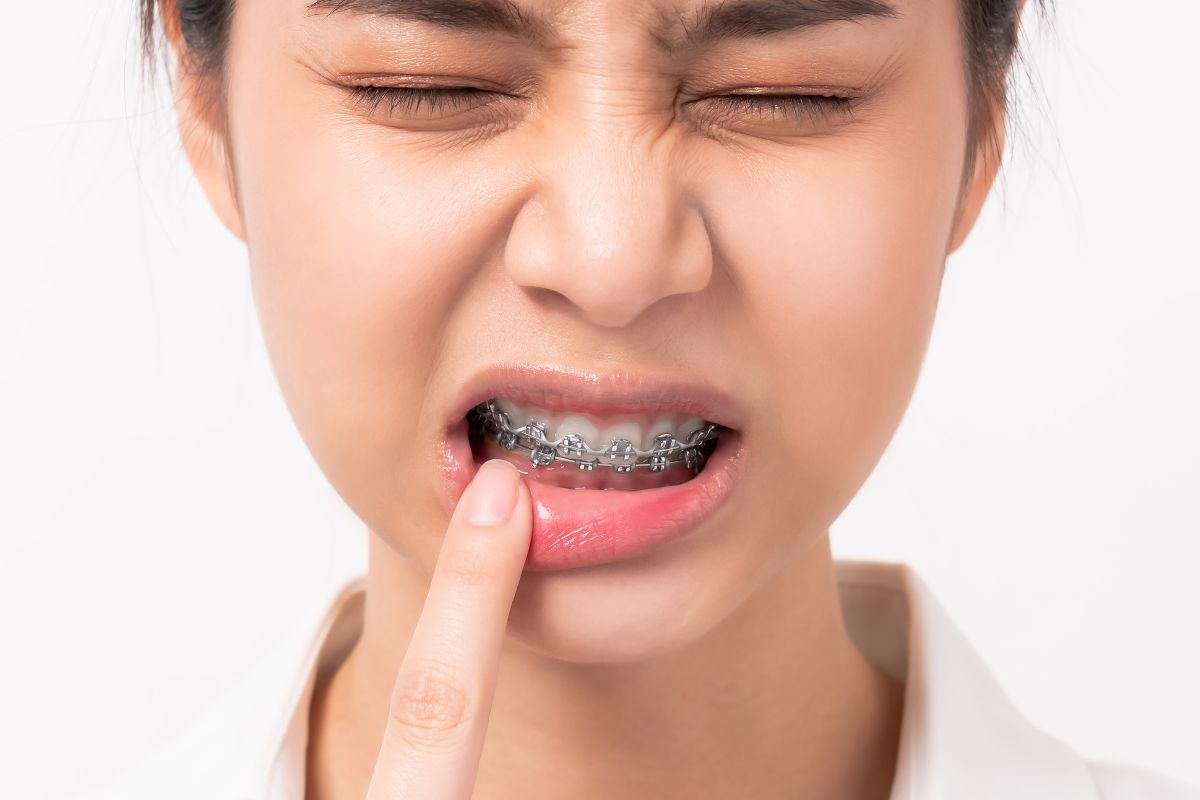A chipped tooth can happen to anyone, whether from an accident, biting something hard, or natural wear and tear.
While many turn to a general dentist, you might wonder if an orthodontist can help.
In this guide, we’ll discuss whether an orthodontist can fix a chipped tooth, the treatments available, and how orthodontics fits into dental care. While orthodontists primarily focus on aligning teeth and correcting bites, Seaport orthodontic specialists can play a role in managing chipped teeth, especially if they affect the alignment or function of your bite. In some cases, they may collaborate with general dentists or other specialists to restore the tooth's appearance and function.
Can an orthodontist fix a chipped tooth?
Orthodontists typically don’t repair chipped teeth, but they can refer you to a dentist who can restore the tooth. However, they may help with adjustments if it affects your braces.
Key Takeaways
- Orthodontists typically do not handle direct tooth restoration like filling or repairing a chip.
- However, if a chipped tooth is affecting the alignment of your bite, an orthodontist might be involved in the treatment process.
- General dentists are the primary professionals to visit for chipped teeth, but orthodontists may assist in ensuring long-term alignment after repairs.
What Is an Orthodontist and What Do They Do?

An orthodontist is a dental specialist trained to diagnose, prevent, and treat issues related to teeth alignment, bite problems, and jaw irregularities.
They typically work with braces, retainers, and other appliances to ensure proper tooth and jaw alignment.
Orthodontists deal mainly with the structure and function of teeth, ensuring that everything lines up correctly to prevent further issues.
When it comes to fixing a chipped tooth, orthodontists usually won’t be the go-to professional.
However, if the chipped tooth is part of a larger issue involving alignment or bite correction, an orthodontist may be needed.
What Happens When a Tooth Gets Chipped?
A chipped tooth is a common issue, and it can range from minor cosmetic damage to more severe fractures that expose the inner layers of the tooth.
The severity of a chipped tooth will determine the type of treatment required.
Minor chips may not require any immediate care other than smoothing out the rough edge, while larger chips may expose the pulp or nerves, requiring more extensive treatment.
The first step when a tooth is chipped is to assess the damage and determine whether it is primarily a cosmetic issue or if the tooth's integrity has been compromised.
In either case, treatment is often necessary to prevent further damage, sensitivity, or discomfort.
Can an Orthodontist Fix a Chipped Tooth?
While orthodontists specialize in aligning teeth and addressing bite issues, they are not typically the professionals who fix chipped teeth.
Orthodontists do not usually perform restorative treatments such as fillings, crowns, or veneers, which are often used to repair chips.
Instead, these procedures are performed by general dentists or cosmetic dentists who specialise in tooth restoration.
However, orthodontists can play a role if the chipped tooth is affecting your bite or if it is part of a larger issue involving misalignment.
For instance, if the chip is in a tooth that is part of a misaligned set of teeth, an orthodontist may be needed to correct the alignment before the chipped tooth can be repaired.
In some cases, an orthodontist may recommend working with a general dentist to resolve the problem and then use their expertise to ensure the bite remains aligned after treatment.
When Should You See a General Dentist for a Chipped Tooth?

If you have a chipped tooth, the first step is to contact a general dentist. They will be able to assess the damage and recommend the appropriate course of action.
Here are some common treatments that a general dentist might use to fix a chipped tooth:
Tooth Bonding
For small chips, a dentist may apply a tooth-colored resin to restore the shape and function of the tooth. This treatment is quick and cost-effective.
Veneers
If the chip is larger or if you want a more permanent and aesthetic solution, a veneer may be placed over the front of the tooth.
Veneers are thin shells of porcelain that cover damaged teeth to restore their appearance.
Crowns
For more severe chips that have exposed the tooth’s inner layers, a crown may be necessary. Crowns encase the tooth completely to protect it from further damage.
Root Canal Therapy
If the chip has exposed the pulp of the tooth, a root canal may be required to remove the infected tissue and prevent further damage.
When Do You Need an Orthodontist for a Chipped Tooth?
While orthodontists are not directly involved in the restoration of chipped teeth, they may play a role in cases where the tooth is part of an ongoing treatment plan or if the chip is part of an alignment issue.
Here are a few situations where an orthodontist might be involved:
Bite Misalignment
If the chipped tooth is part of an overall bite misalignment issue, an orthodontist may be needed to adjust the bite and align the teeth properly.
In these cases, the orthodontist will work with your general dentist to ensure the repaired tooth fits seamlessly into the newly aligned bite.
Braces or Aligners
If you are wearing braces or aligners and suffer a chip in a tooth, the orthodontist may need to adjust your braces to ensure the tooth is properly aligned with the rest of the teeth after the chip is repaired. For expert care and adjustments, visiting a North End braces specialist can provide you with the necessary treatment to ensure your braces or aligners continue to work effectively while your tooth heals.
Comprehensive Treatment Plans
If your chipped tooth is part of a comprehensive treatment plan to improve your overall dental health, an orthodontist might need to be involved to ensure that everything works together.
For instance, after the tooth is restored, the orthodontist may adjust the alignment to prevent future damage to the repaired tooth.
Frequently Asked Questions
1. Can an orthodontist fix a chipped tooth?
No, orthodontists typically don’t perform tooth restoration like fillings or veneers. A general dentist is the professional you should see for fixing a chipped tooth.
2. What treatments are available for a chipped tooth?
Treatments for a chipped tooth include tooth bonding, veneers, crowns, or root canal therapy depending on the severity of the damage.
3. When should I visit an orthodontist for a chipped tooth?
You may need to see an orthodontist if the chipped tooth is part of an overall alignment issue or if you are undergoing treatment like braces or aligners.
Conclusion
While orthodontists are not typically responsible for fixing chipped teeth, they can play an essential role if the chip is part of an ongoing treatment plan or if it affects the alignment of your bite.
For most chipped tooth issues, however, a general dentist is the best professional to handle the repair.
Understanding the different types of treatments available and the potential role of orthodontics can help you make the right decision for your dental health.
Always consult with your dentist or orthodontist to determine the best course of action for your specific needs.
%202.svg)



